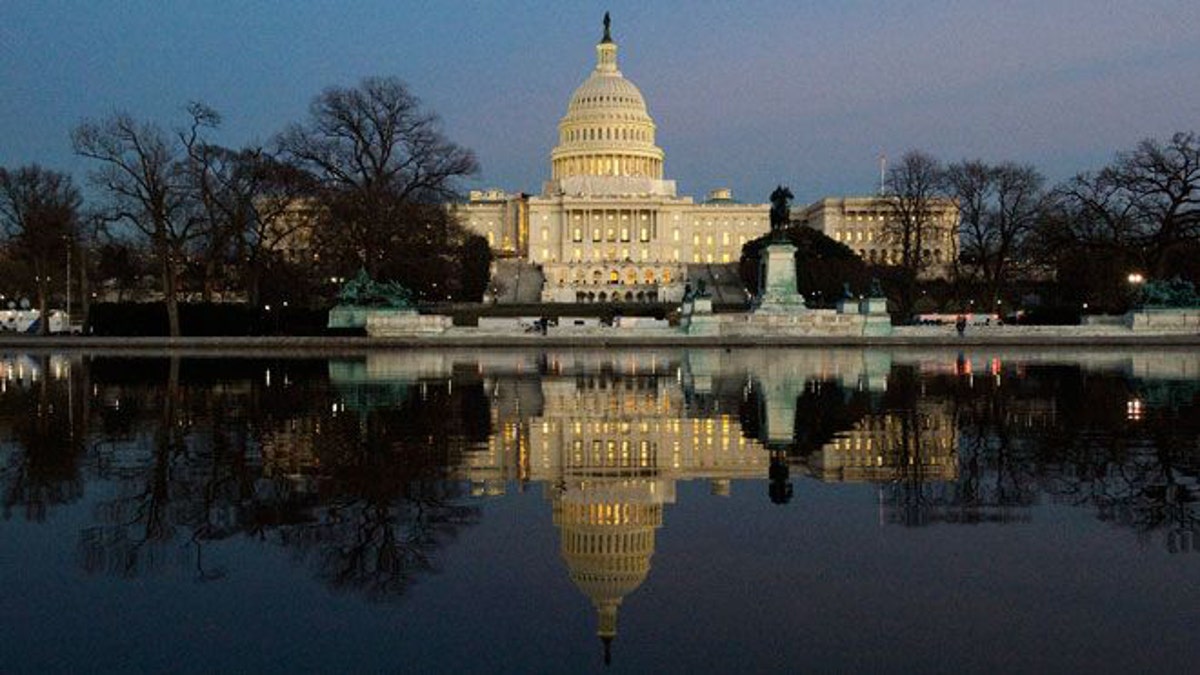
(Reuters)
With the Academy Awards still fresh in our minds, it’s a good time to remember that motion pictures are big business. Hollywood sets the tone for the world for the industry while adding billions to the U.S. economy annually. Everyone wants to see American movies and everyone, it seems, wants to be in the movie business -- even if they have to break the law as the price of entry.
At the Oscars there can be only one “Best Picture.” For the intellectual property pirates, however, every popular movie has major profit potential.
Each year, billions are lost to international criminal enterprises that make bootleg copies of the latest releases and sell them or stream them over the Internet. Sometimes this even happens while the movies are still in theaters.
[pullquote]
It’s not just Hollywood that has to deal with this problem. The whole e-commerce marketplace is infected. The National Football League, working in cooperation with the U.S. government, announced last week that it “had seized a record $13.6 million worth of counterfeit NFL merchandise” during the 2012-2013 season. Among the various items taken in raids included 226 boxes containing more than 4,000 fake football jerseys and more than 160,000 pieces of phony Super Bowl memorabilia.
Intellectual piracy on the Internet is a serious problem, one that policymakers in Washington need to address quickly and responsibly without unduly restricting Internet freedom.
The framers thought so much of the idea of protecting inventions and other forms of what we now call intellectual property that they included the protection of patents in the U.S. Constitution as a legitimate function of the federal government, something so central to the national economy that it should not be left to the discretion of the states.
With the rise of e-commerce, things have simply gotten out of control, with the counterfeit Super Bowl-related items being just one of the many kinds of materials invented, developed, created, and produced in the United States that are being stolen, replicated, and put up for sale in cyberspace.
Each day new websites go live specifically for the purpose of selling fraudulent copies of movies, software, pharmaceuticals, computer games, clothing, and certain so-called high end goods to consumers who either don’t know or don’t want to know that the things being sold are not the real McCoy. Most of the sellers use servers located outside the United States.
Everyone supports an open and free Internet and applauds the efforts of the United States and the other democratic states to keep authoritarian regimes and petty, tin-pot dictators from closing off access to the Net to the people of the world.
The desire to see the Internet remain free and open does not mean, however, that we should countenance lawlessness. A balance must be struck between the needs of content creators and the advocates of a free and open Internet. The “rules of the road” are still to be written and, when they are, the need to protect U.S. generated intellectual property should be foremost in the minds of legislators.
The Internet and the world of e-commerce will not continue to grow and thrive either in an environment of overbearing regulation or in one which turns a blind eye to theft and other forms of lawlessness. Freedom and safety are complementary; the American people deserve both. The Internet must not become a haven for hackers and foreign criminals.
Congress has tried to address this issue before, but pressure campaigns relying on false information and hysterical allegations of government over-reach – perhaps funded by entities who do not believe that someone else’s intellectual property rights should be a barrier to their ability to make money – dissuaded legislators from taking action. That must not be allowed to happen again.
What is needed first is a measured, informed debate about the principles of intellectual property rights, their value to the national economy, their role as job creators, and the threats against them. All of the stakeholders in the fight, including U.S. consumers, should participate in an open process to develop a fair, rational plan to protect those rights without compromising the free flow of information and the sale of goods on the Internet.
We should all support the voluntary actions being taken by industry, by Internet service providers, and others to stop the sale and distribution of counterfeit goods online. And we should all applaud the efforts of law enforcement to arrest those engaged in such activities and to seize the goods they are trying to sell. These voluntary actions have created a framework on which to develop effective and reasonable solutions to the problem of online piracy. They are a “win-win-win” -- good for consumers, good for jobs and consistent with preserving a vibrant, innovative and open Internet.
Unfortunately, however, they are not enough. Congress needs, after careful consideration and debate, to empower the federal government to take actions that, consistent with the constitutional protections afforded us all, will make it easier to close down the electronic storefronts that are being used to sell pirated goods.
The protection of intellectual property and the ideal of Internet freedom are both critically important. We encourage and support the efforts of policymakers on both sides of the aisle to find effective and reasonable solutions to this ongoing problem. Ultimately, they must work together to find to find ways to effectively protect freedom and intellectual property online, while continuing to support innovation on the Internet.
